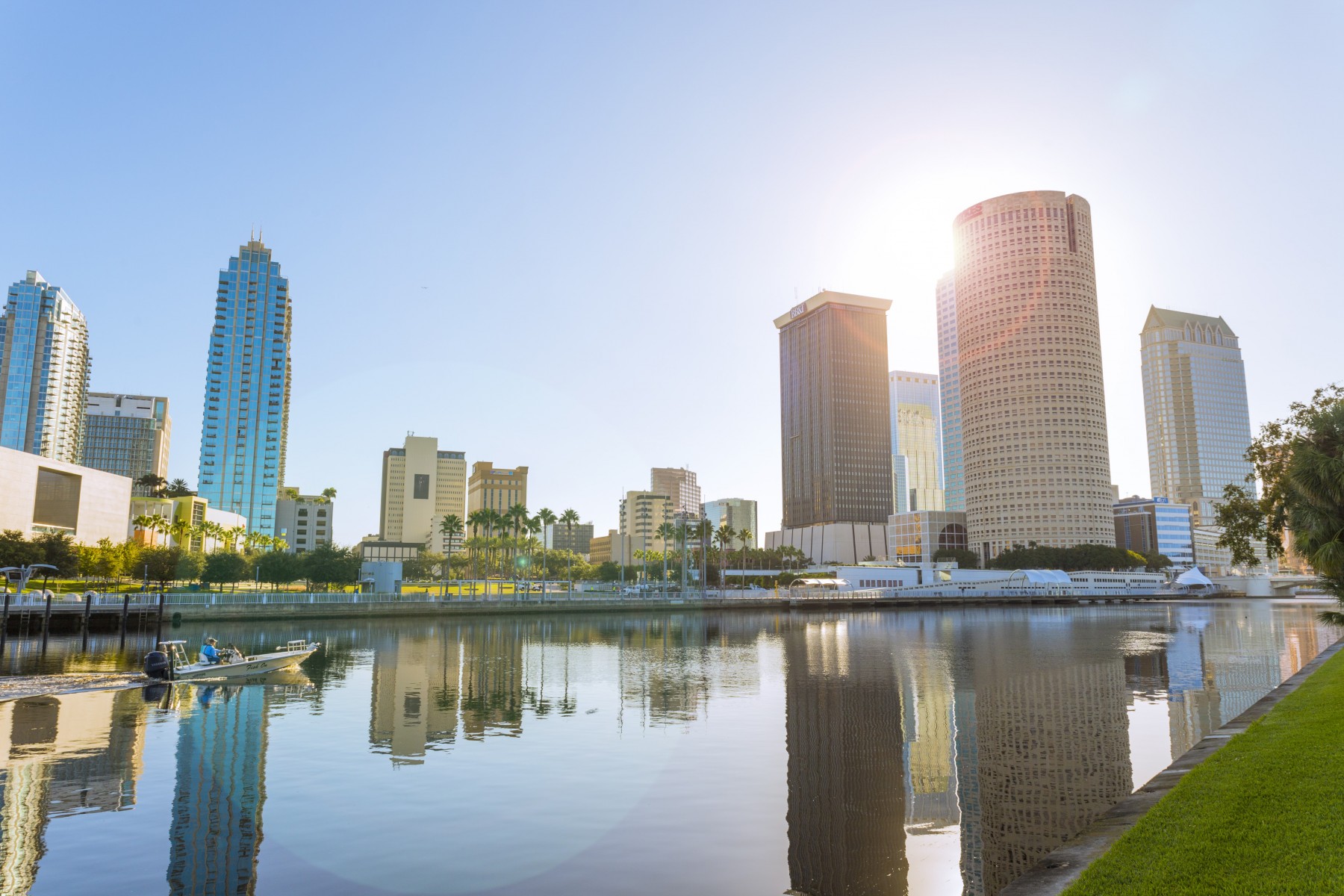Anyone renting or apartment-hunting around Tampa Bay knows that rents are going up, as the area’s housing continues to be in breathless demand. But new data reinforces what some locals have already suspected: These are not everyday hikes.
Tampa Bay’s average asking rent rose 15.6 percent in the first half of 2021, according to data from CoStar Group, a national real estate data company. That’s the fastest rate of growth for any metro area in the nation, followed by increases of 15.3 percent in Austin, Texas; 14.9 percent in Raleigh, N.C.; 14.5 percent in Orlando and 13.7 percent in Phoenix.
The increase means that on Jan. 1, the average asking rent for a one-bedroom, one-bathroom unit was $1.41 per square foot. By June 30, it hit $1.63. The analysis includes Pinellas, Hills- borough, Pasco and Hernando counties.
That translates to an average 750-square-foot apartment costing about $1,058 at the beginning of the year, now going for about $1,223, with larger increases for bigger units.

Brian Alford, CoStar’s director of market analytics for Florida, said these increases are being driven by several factors, including the extreme conditions for home-buyers.
“The big factor is the tight housing market with record price growth and record low inventory, which is locking people in place,” he said. “Anyone looking to purchase isn’t finding anything available, especially in the price range for renters (transitioning to homeownership).”
Other factors are also increasing demand for rental housing, including what Alford calls “unusually high household formation growth” — that is, a rush of people who had put off moving into apartments because of the pandemic are now doing so all at once. Think young adults living with their parents moving out, recent college grads striking out on their own, and roommates getting their own places, all bolstered by increased savings from the recent stimulus checks.
Search activity on apartments.com, for example, has surged to record highs, according to Alford.
“We have all this coming at once, fueling unprecedented demand,” he said.
But what about all those cranes around Tampa Bay, building apartment complexes seemingly everywhere?
CoStar data shows that Tampa Bay is, in fact, seeing its greatest increase in supply in two decades, with 5,600 new rental units delivered last year. This year’s pace is on track to be even higher. But demand is so strong that it’s absorbing all of it and more — the region still has a vacancy rate at about 4.9 percent, the first time it’s ever dipped below 5 percent since CoStar started tracking in the 90s.
“That just further reinforces how strong the demand is,” Alford said. In addition to Tampa Bay being a top place that people are migrating to, it also saw its rent prices rebound earlier than the rest of the country, he said.
The numbers match what Kaleigh Mota, 29, sees in her apartment complex in the Gateway area of Pinellas Park. Her two-bedroom, two-bathroom unit costs about $1,800 per month, she said, but she’s bracing for a likely increase when her lease expires in February.
Her building has started to raise rates by a couple hundred dollars, and the one across the street hiked theirs up by $600 in less than a year, she said. She and her girlfriend, who is a nurse, would like to buy a house, but have watched as the market feels increasingly out of reach for their budget. Mota works on business development and marketing for a technology firm.
“Where do we go when our lease is up? Because too many people can’t afford a couple extra hundred dollars a month,” she said. “I just don’t realistically see too many people that have lived in this area and have a job based out of Tampa Bay being able to afford living in this city anymore.”
Mota is originally from Rhode Island, and so has seen places like Boston that have experienced runaway rent hikes. But there, wages have risen to compensate for the higher cost of living, she said, which she doesn’t see happening here at the same pace.
Alford said Tampa Bay’s growth in rent compared to the rest of the country is a great sign for its economy because it’s a reflection of its strong rebound. But, for renters, he acknowledged the news is “terrible.”
“The key thing for renters is this kind of rent growth isn’t sustainable long-term,” he said. “It can’t grow at this pace for much longer.”





